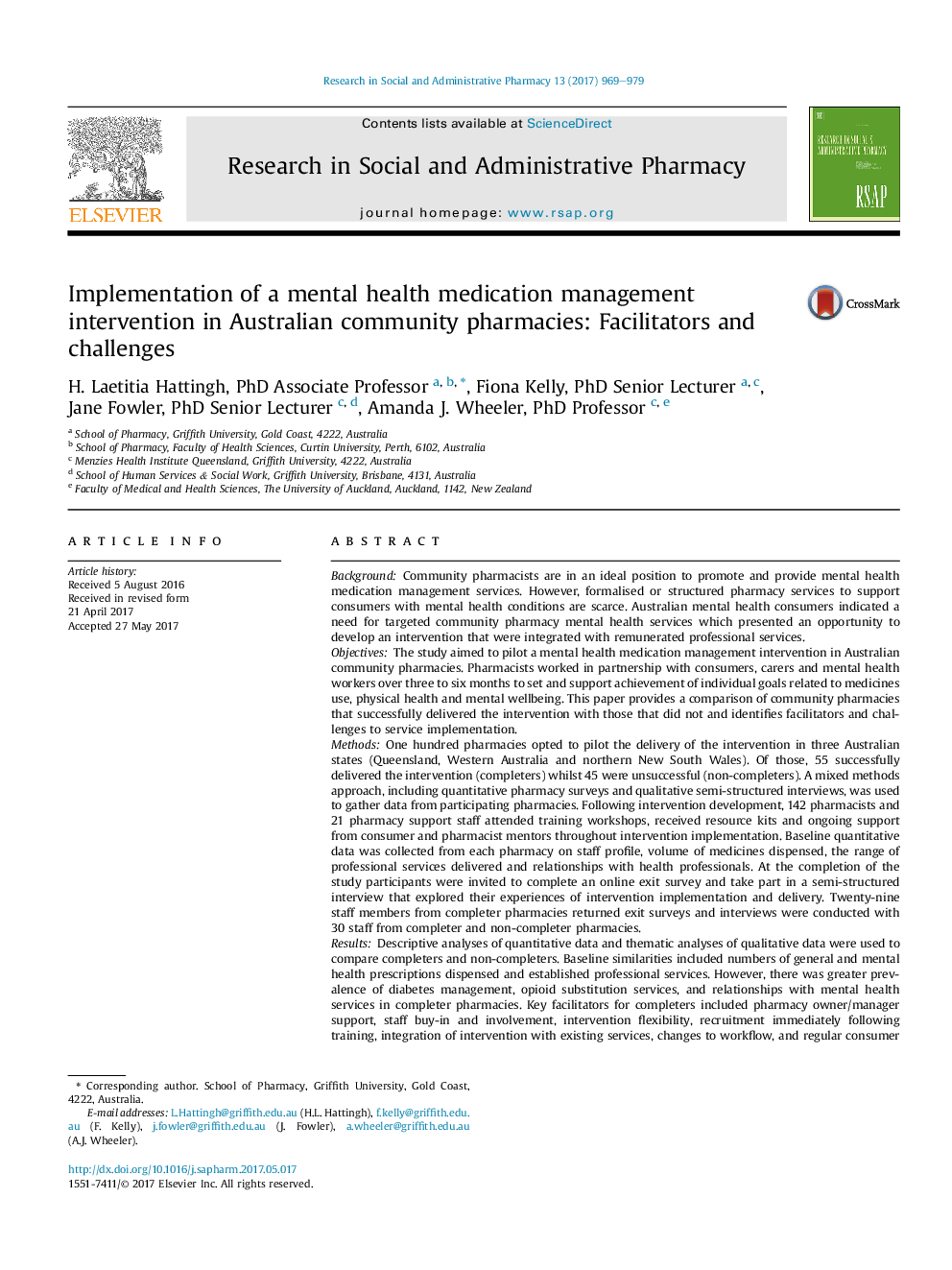| Article ID | Journal | Published Year | Pages | File Type |
|---|---|---|---|---|
| 5551173 | Research in Social and Administrative Pharmacy | 2017 | 11 Pages |
â¢Trained staff in 55 community pharmacies implemented a mental health medication management support intervention.â¢At baseline completer pharmacies provided more diabetes and opioid substitution services than non-completer pharmacies.â¢Facilitators were intervention flexible design, management support, staff involvement and integration with other services.â¢Results revealed facilitators and challenges of implementation of a mental health medication management intervention.
BackgroundCommunity pharmacists are in an ideal position to promote and provide mental health medication management services. However, formalised or structured pharmacy services to support consumers with mental health conditions are scarce. Australian mental health consumers indicated a need for targeted community pharmacy mental health services which presented an opportunity to develop an intervention that were integrated with remunerated professional services.ObjectivesThe study aimed to pilot a mental health medication management intervention in Australian community pharmacies. Pharmacists worked in partnership with consumers, carers and mental health workers over three to six months to set and support achievement of individual goals related to medicines use, physical health and mental wellbeing. This paper provides a comparison of community pharmacies that successfully delivered the intervention with those that did not and identifies facilitators and challenges to service implementation.MethodsOne hundred pharmacies opted to pilot the delivery of the intervention in three Australian states (Queensland, Western Australia and northern New South Wales). Of those, 55 successfully delivered the intervention (completers) whilst 45 were unsuccessful (non-completers). A mixed methods approach, including quantitative pharmacy surveys and qualitative semi-structured interviews, was used to gather data from participating pharmacies. Following intervention development, 142 pharmacists and 21 pharmacy support staff attended training workshops, received resource kits and ongoing support from consumer and pharmacist mentors throughout intervention implementation. Baseline quantitative data was collected from each pharmacy on staff profile, volume of medicines dispensed, the range of professional services delivered and relationships with health professionals. At the completion of the study participants were invited to complete an online exit survey and take part in a semi-structured interview that explored their experiences of intervention implementation and delivery. Twenty-nine staff members from completer pharmacies returned exit surveys and interviews were conducted with 30 staff from completer and non-completer pharmacies.ResultsDescriptive analyses of quantitative data and thematic analyses of qualitative data were used to compare completers and non-completers. Baseline similarities included numbers of general and mental health prescriptions dispensed and established professional services. However, there was greater prevalence of diabetes management, opioid substitution services, and relationships with mental health services in completer pharmacies. Key facilitators for completers included pharmacy owner/manager support, staff buy-in and involvement, intervention flexibility, recruitment immediately following training, integration of intervention with existing services, changes to workflow, and regular consumer contact. Key barriers for both groups included lack of pharmacy owner/manager support or staff buy-in, time constraints, privacy limitations and pilot project associated paperwork.ConclusionsInsights into factors that underpinned successful intervention implementation and delivery should inform effective strategies for similar future studies and allocation of pharmacy mental health service delivery resources.
